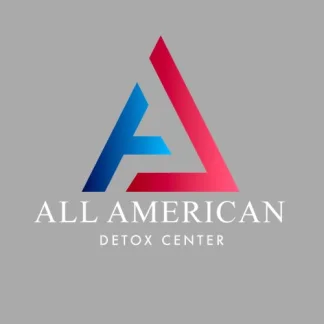Harmony Place
Harmony Place offers rehabilitation services for individuals with substance abus...
All American Detox is located in Los Angeles, California and offers substance abuse treatment to teens, adults, and seniors. The drug rehab facility has several programs to help people on their road to recovery. These programs include detox and residential inpatient.
The detox program takes an evidence-based approach that’s based on recognized patterns of addictions. Medical professionals provide around-the-clock care and administer medication to ease withdrawal symptoms.
Residential treatment serves as the next step after detox. Participants live on campus in a luxurious home-like setting free of substances. While living on campus, patients follow a structured schedule, attending individual and group counseling sessions.
All American Detox is accredited by The Joint Commission.
All American Detox accepts most private insurance providers, including Magellan Health, Kaiser Permanente, Bright Health, Wellmark, HCSC, and TRICARE. This treatment center also accepts United Healthcare, Ambetter, BlueCross/BlueShield, Cigna, Humana, and Beacon. For out of network benefits, please contact your insurance provider to verify what they will cover.
Contact us for more information: (855) 942-4717

Connect with All American Detox by calling their admissions team directly.
(855) 942-4717 Website Get DirectionsResearch clearly demonstrates that recovery is far more successful and sustainable when loved ones like family members participate in rehab and substance abuse treatment. Genetic factors may be at play when it comes to drug and alcohol addiction, as well as mental health issues. Family dynamics often play a critical role in addiction triggers, and if properly educated, family members can be a strong source of support when it comes to rehabilitation.
Group therapy is any therapeutic work that happens in a group (not one-on-one). There are a number of different group therapy modalities, including support groups, experiential therapy, psycho-education, and more. Group therapy involves treatment as well as processing interaction between group members.
In individual therapy, a patient meets one-on-one with a trained psychologist or counselor. Therapy is a pivotal part of effective substance abuse treatment, as it often covers root causes of addiction, including challenges faced by the patient in their social, family, and work/school life.
Group therapy is any therapeutic work that happens in a group (not one-on-one). There are a number of different group therapy modalities, including support groups, experiential therapy, psycho-education, and more. Group therapy involves treatment as well as processing interaction between group members.
In individual therapy, a patient meets one-on-one with a trained psychologist or counselor. Therapy is a pivotal part of effective substance abuse treatment, as it often covers root causes of addiction, including challenges faced by the patient in their social, family, and work/school life.
In individual therapy, a patient meets one-on-one with a trained psychologist or counselor. Therapy is a pivotal part of effective substance abuse treatment, as it often covers root causes of addiction, including challenges faced by the patient in their social, family, and work/school life.
Harmony Place offers rehabilitation services for individuals with substance abus...
Destinations - Canon House offers inpatient services for adolescents ages 13-17 ...
OPI is a private rehab located in Woodland Hills, California. OPI specializes in...
Divinity Recovery is located in Los Angeles, California. They provide alcohol an...